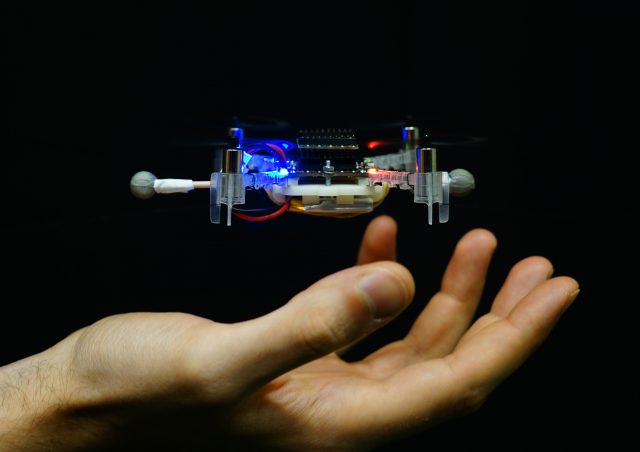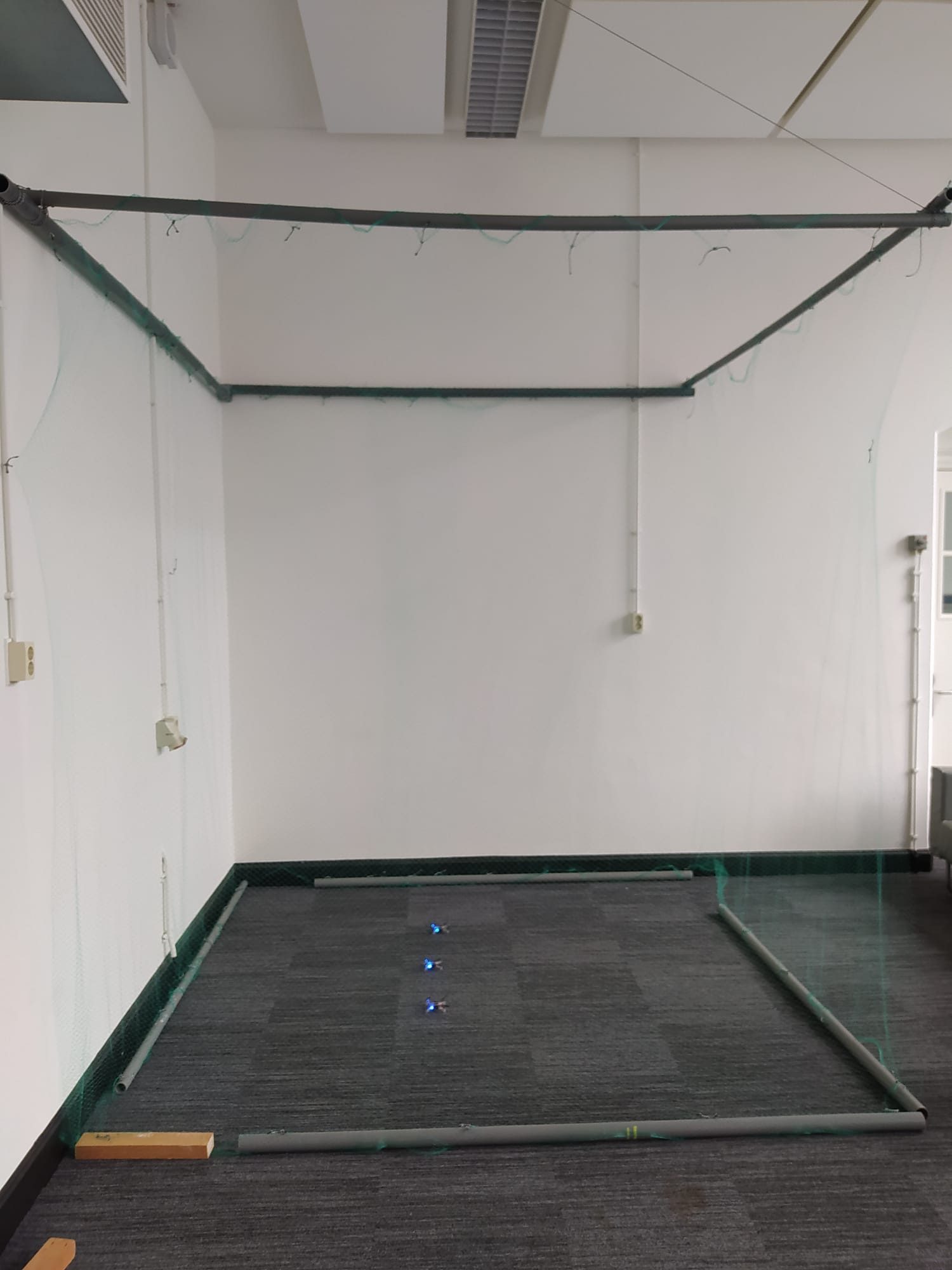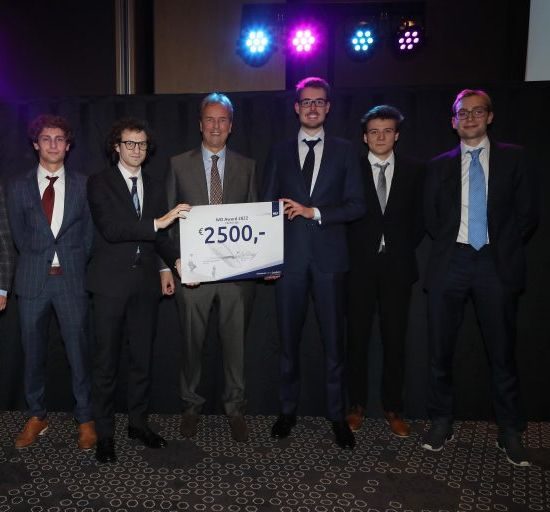
Robohub.org
Robotic flies to swarm 24/7 in RoboHouse

Image source: Bitcraze
Yes, you heard that correctly: the goal is permanent airtime. Robotic flies roaming a room in RoboHouse with no human guidance – achieved within six months. In the future, 24/7 swarms like these may revolutionise aircraft inspection. Imagine a fighter jet enveloped by hundreds of nano drones that build-up a detailed picture in minutes. It’s a challenging mission, but not all challenges are equal. So we asked each Crazyflies team member: What is your favourite problem?
Lennart #myfavouritedesignproblem
Okay, maybe permanent flying is exaggerating a bit, at some point batteries need recharging, but it remains the overall design essence. For team member Lennart, this is the main challenge: “We want to optimise the charging process so that you have as many drones in the air as possible with a minimum amount of charging pads.”
Each Crazyflie can buzz off for seven minutes before needing a 35 minute recharge. Through the use of wireless charging pads, human intervention is cancelled out, the alternative being manual battery replacement.
Seppe #myfavouritedesignproblem
But challenges go way further than just battery strategy. Student Seppe identifies his favourite obstacle-to-overcome in collision avoidence: “This does not only include collisions between drones, but also with stationary objects,” Seppe tells us. “By deploying sensors and proper coding, these risks are minimised. Yet the strength of a robust system doesn’t lie in reducing risks, it lies in handling them when they happen.”
Servaas #myfavouritedesignproblem
Servaas’s favourite challenge ties in with that of his colleague: round-trip latency. Or in English: the time it takes for the flying AI-insects to send their observations and receive commands in return. “Depending on how much time this transfer of information takes up, we could for instance let the drones react to more unpredictable objects such as humans.” Perhaps actual flies could also identify as such an object.

Andreas #myfavouritedesignproblem
Floating away from technical aspects, Andreas defines solving real-world problems his goal: “Designing an autonomous, 24/7 flying drone swarm is cool, but we also want to have an actual impact through real-world application.” Andreas seeks to fulfil this wish by doing market research and identifying problems that yet remain devoid of a solution. One such application could be the inspection of large or difficult-to-access infrastructure like bridges or power lines.
Andrea #myfavouritedesignproblem
Not coming from a robotic background, for fifth team member Andrea the challenge amounted to familiarising all this software involved. Luckily, Andrea managed to learn the tools of the trade, finding the AI-insects’ autonomy one of the next exciting challenges to be tackled.

The drones
But wait, this does not yet complete the team. There are a hundred other individuals, quite literally also team members. The students have included the Crazyflies in their team, deciding to name them ‘member 6 to 105’. These drones are going to inspect infrastructure all by themselves, only stopping occasionally to recharge their batteries.
Cyberzoo
If all goes well, the Crazyflies could become part of the Crazy Zoo robot exhibition on TU Delft Campus, an initiative by Chris Verhoeven, theme leader swarm robots at TU Delft. For now though, the students have a lot of work on their hands to realise their dreams and live up to the challenges. We have no doubt they will fly high.
The post Robotic flies to swarm 24/7 in RoboHouse appeared first on RoboHouse.



